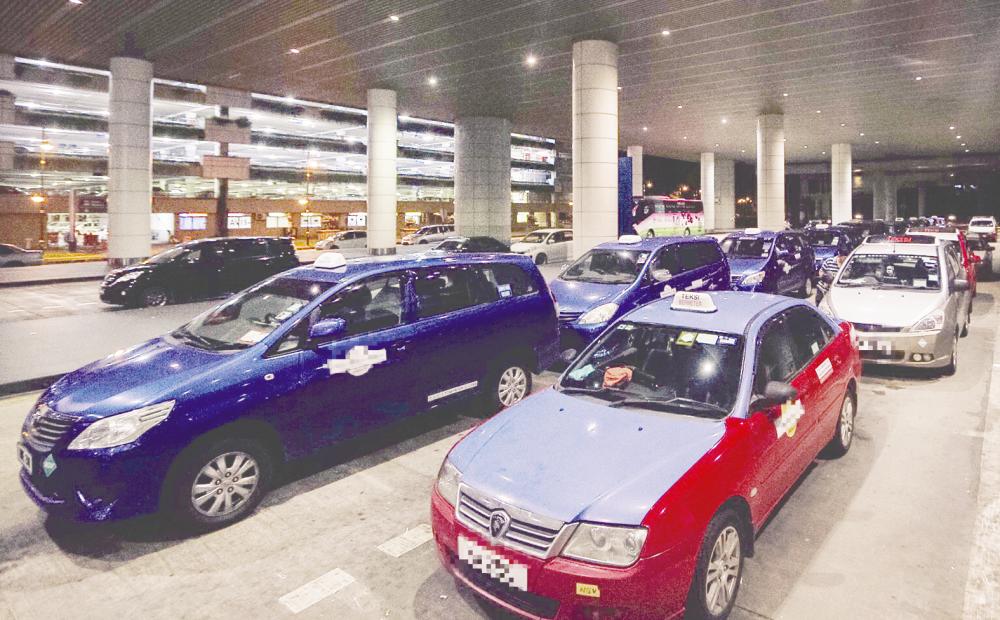PETALING JAYA: Gabungan Teksi SeMalaysia has called on the Transport Ministry to put a stop to illegal ride-hailing services, known as kereta sapu, more effectively as current efforts seem to be failing.
Its president Kamarudin Mohd Hussain said inadequate enforcement efforts have made it easier for illegal operators to hide behind e-hailing services to operate.
“The situation has worsened of late due to the inability of enforcement authorities to curb kereta sapu activities. This is also due to legal loopholes within the
e-hailing sector that make it difficult to distinguish between licensed vehicles and kereta sapu.
“While the issue is often highlighted in the media, there have only been a few arrests that generated significant attention.
“Thousands of illegal kereta sapu continue to operate, including many driven by foreign nationals.”
Road Transport Department deputy director-general (Planning and Operations) Datuk Jazmanie Shafawi said Ops Ulat, conducted from Nov 25 to Dec 3, resulted in the arrest of 15 individuals suspected of offering unauthorised transport services.
He said illegal operators earn between RM10,000 and RM30,000 monthly and the department has arrested 469 illegal operators since 2022 and fined them more than RM1.66 million.
Kamarudin said enforcement actions have yet to present a meaningful deterrent and current measures appear to be reactive rather than proactive.
“I propose that the government grant enforcement authority to the Land Public Transport Agency, similar to the powers previously held by the Commercial Vehicle Licensing Board.
“Any appointment of enforcement officers within the agency must follow strict standards to avoid the shortcomings of the past, in which enforcement efforts did not meet expectations.”
Gerakan E-Hailing Malaysia chief activist Jose Rizal said close collaboration between the government, e-hailing companies and the community is essential to eliminate kereta sapu.
He said while the Road Transport Act 1987 provides provisions to regulate vehicles and traffic on public roads, compliance remains low.
“This highlights the need for stricter enforcement and potential improvements to the law. The use of advanced technology and harsher penalties for repeat offences are necessary to address the matter effectively.”
UiTM Malaysian Institute of Transport head of legal and quality Dr Siti Ayu Jalil said kereta sapu operations have a detrimental impact on Malaysia’s transport ecosystem as they bypass established legal frameworks and undermine the safety, fairness and integrity of the transport sector.
She said kereta sapu operations also create regulatory challenges as enforcement agencies struggle to address their operations.
“The main challenge in addressing kereta sapu activities lies in law enforcement, public awareness and active reporting of such offences.
“If enforcers and consumers play their roles, the issue could be resolved effectively.”
She said illegal ride-hailing services pose risks to passenger safety as they often operate without proper regulations or standards.
“One significant concern is the lack of insurance coverage in the event of a road crash, leaving passengers vulnerable.
“They also often operate
without regulated pricing, which means passengers could be
unfairly charged.
“The safety risks are
heightened because drivers are not required to undergo screenings or meet safety standards, unlike licensed operators.”
She said consumers who prefer to use kereta sapu services
would face consequences due to
its illegality.
Individuals involved in these activities would be penalised under Section 23(2) for the misuse of the Motor Vehicle Licence under the Road Transport Act 1987.
If convicted, offenders could face a fine of between RM1,000 and RM10,000, up to two years’ jail, or both.









